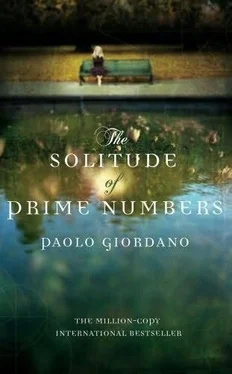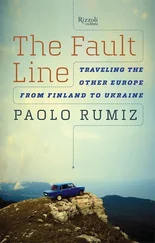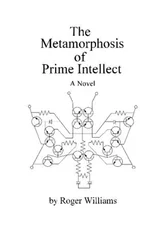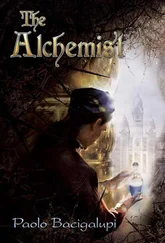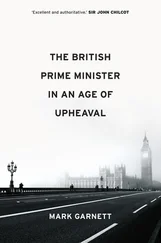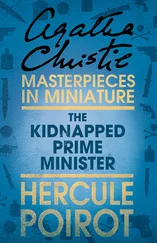He was driving him to his new school. It was raining, but the rain was so fine that it didn't make a sound.
A few weeks before, the principal of Mattia's science high school had called him and Adele to his office, to inform them of a situation . But when the time came for the meeting, he skirted the issue, dwelling instead on the boy's sensitive temperament, his extraordinary intelligence, his solid 90 percent average in all subjects.
Mr. Balossino had insisted on his son being present for the discussion, for reasons of correctness, which doubtless interested him alone. Mattia had sat down next to his parents and throughout the whole session he had not raised his eyes from his knees. By clenching his fists tightly he had managed to make his left hand bleed slightly. Two days before, Adele, in a moment of distraction, had checked only the nails on his other hand.
Mattia listened to the principal's words as if he were not really talking about him, and he remembered that time in the fifth year of primary school when, after not uttering a word for five days in a row, his teacher, Rita, had made him sit in the middle of the room, with all the other kids arranged around him in a horseshoe. The teacher had begun by saying that Mattia clearly had a problem that he didn't want to talk to anyone about. That Mattia was a very intelligent child, perhaps too intelligent for his age. Then she had invited his classmates to sit close to him, so that they could make him understand that they were his friends. Mattia had looked at his feet, and when the teacher asked him if he wanted to say something, he finally opened his mouth and asked if he could go back to his chair.
Once the plaudits were finished, the principal got down to business. What Mr. Balossino finally understood, although only a few hours later, was that all of Mattia's teachers had expressed a peculiar unease, an almost impalpable feeling of inadequacy, with regard to this extraordinarily gifted boy who seemed not to want to form bonds with anyone his age.
The principal paused. He leaned back in his comfortable armchair and opened a folder, which he didn't need to read. Then he closed it again, as if remembering all of a sudden that there were other people in his office. With carefully chosen words he suggested to the Balossinos that perhaps the science high school was not capable of responding fully to their son's needs.
When, at dinner, Mattia's father had asked him if he really wanted to change schools, Mattia had replied with a shrug and studied the dazzling reflection of fluorescent light on the knife with which he was supposed to be cutting his meat.
"It isn't really raining crooked," said Mattia, looking out the car window and jerking his father out of his thoughts.
"What?" said Pietro, instinctively shaking his head.
"There's no wind outside. Otherwise the leaves on the trees would be moving as well," Mattia went on.
His father tried to follow his reasoning. In fact none of it meant anything to him and he suspected that it was merely another of his son's eccentricities.
"So?" he asked.
"The raindrops are running down the window at an angle, but that's just an effect of our motion. By measuring the angle with the vertical, you could also calculate the fall velocity."
Mattia traced the trajectory of a drop with his finger. He brought his face close to the window and breathed on it. Then, with his index finger, he drew a line in the condensation.
"Don't breathe on the windows, you'll leave marks."
Mattia didn't seem to have heard him.
"If we couldn't see anything outside the car, if we didn't know we were moving, there would be no way of telling whether it was the raindrops' fault or our own," said Mattia.
"Fault for what?" his father asked, bewildered and slightly annoyed.
"For them coming down so crooked."
Pietro Balossino nodded seriously, without understanding. They had arrived. He put the car in neutral and pulled on the hand brake. Mattia opened the door and a gust of fresh air blew inside.
"I'll come and get you at one," said Pietro.
Mattia nodded. Mr. Balossino leaned slightly forward to kiss him, but the belt restrained him. He leaned back into the seat and watched his son get out and close the door behind him.
The new school was in a lovely residential area in the hills. It had been built in the Fascist era, and in spite of recent renovations, it remained a blot on the landscape amid a row of sumptuous villas; a parallelepiped of white concrete, with four horizontal rows of evenly spaced windows and two green iron fire escapes.
Mattia climbed the two flights of steps leading to the main door but kept his distance from all the little groups of kids who were waiting for the first bell, getting wet from the rain.
Once inside, he looked for the floor plan with the layout of the classrooms, so that he wouldn't have to ask the janitors for help.
F2 was at the end of the corridor on the second floor. Mattia took a deep breath and entered. He waited, leaning against the back wall, with his thumbs hooked in the straps of his backpack and the look of someone who wanted to disappear into the wall.
As the students were taking their seats, their new faces glanced at him apprehensively. No one smiled at him. Some of them whispered in each other's ears and Mattia was sure they were talking about him.
He kept an eye on the desks that were still free, and when even the one next to a girl with red nail polish was taken, he felt relieved. The teacher came into the classroom and Mattia slipped onto the last empty chair, next to the window.
"Are you the new boy?" asked his neighbor, who looked just as alone as he did.
Mattia nodded without looking at him.
"I'm Denis," he said, extending his hand.
Mattia shook it weakly and said nice to meet you.
"Welcome," said Denis.
Viola Bai was admired and feared with equal passion by her classmates, because she was so beautiful she made people uneasy, and because at the age of fifteen she knew more about life than any of her contemporaries did; or at least that was the impression she gave. On Monday mornings, during break, the girls congregated around her desk and listened greedily to the account of her weekend. Most times this was a skillful reimagining of what Serena, Viola's older sister by eight years, had told her the day before. Viola transferred the stories to herself, but embellished them with sordid, and often completely invented, details, which to her friends' ears sounded mysterious and disturbing. She talked about this or that bar, without ever having set foot in them, and she was capable of giving minute descriptions of the psychedelic lighting, or of the malicious smile that the bartender had flashed at her as he served her a Cuba libre.
In most cases she ended up either in bed with the bartender or out behind the bar, among the beer kegs and the cases of vodka, where he took her from behind, covering her mouth with his hand to keep her from screaming.
Viola Bai knew how to tell a story. She knew that all the violence is contained in the precision of a detail. She knew how to work the timing so that the bell rang just as the bartender was busy with the fly of his name-brand jeans. At that moment her devoted audience slowly dispersed, their cheeks red with envy and indignation. Viola was made to promise that she would go on with her story at the next bell, but she was too intelligent to actually do it. She always ended up dismissing the whole thing with a pout of her perfect mouth, as if what had happened to her was of no importance. It was just one more detail in her extraordinary life, and she was already light-years ahead of everyone else.
She had actually tried sex, as well as some of the drugs whose names she liked to list, but she had been with only one boy, and only once. It had happened at the shore. A friend of her sister's who had smoked and drunk too much that evening to realize that a little thirteen-year-old girl was too young for certain things. He had fucked her hastily, in the street, behind a trash bin. As they walked back, heads lowered, to rejoin the others, Viola had taken his hand but he had snatched it away and asked what are you doing? Her cheeks burned and the heat still trapped between her legs had made her feel alone. In the days that followed the boy didn't say a word to her and Viola had confided in her sister, who had laughed at her naivete and said wise up, what did you expect?
Читать дальше
